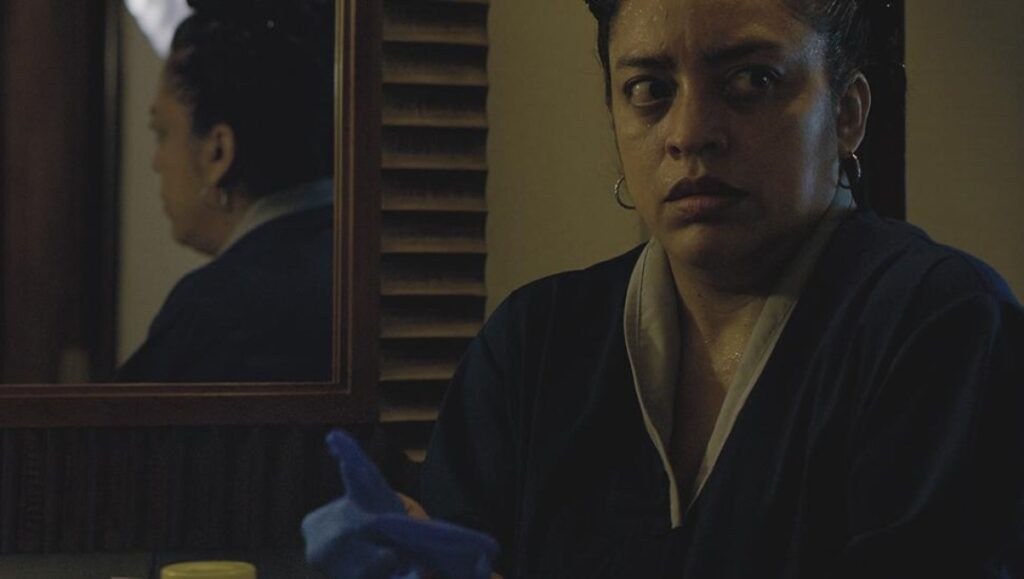Camarera de piso — Lucrecia Martel’s latest short, commissioned as part of The National Autonomous University of Mexico’s Síntesis project — comes with a curious director’s statement: “I had been proposed to find ways to relate contemporary dance with audiovisual language.” While the specifics of what’s being referenced could be chalked up to a translation issue, or one where little context was provided in the first place, this implies that the events that occur during the 15-minute runtime should be, first and foremost, scrutinized on the basis of their physical movements and how they relate to the filmic diegesis around them. And indeed, there is a strong corporeal presence here, one that’s only intensified by how committed Martel is to drawing out said resident’s largely offscreen misery. A woman, training to be a housemaid, continuously receives phone calls from her family about an incoming danger that’s soon to arrive at their doorstep; the unnamed hazard, much like the vagueness of the central character, is ambiguous for its own sake, a plot device that implies that looming danger always lies in the periphery. When the woman’s phone rings, she’s immediately reprimanded by her supervisor and reminded to put all personal items in her locker; the soon-to-be-maid refuses to listen, instead choosing to pick up every time. The calls and their hurried words begin to seep outside into the film’s audio mix itself, where even when the maid’s not on the phone, she’s still haunted by their voices, whispering sullen words about their possible fates.
Which, considering all of those real-world specifics that come with this basic premise (and some rather hefty sociopolitical implications as well), this is a bit of an odd thing to so casually label a “dance,” no? Or, put it another way: considering the starting concept — essentially a play on sound/image theory — how did Martel find her way here other than by pure coincidence (though, happenstance doesn’t seem too likely) or by truly believing there was some connective tissue between the base idea and the complete work? The former would be acceptable, if completely naive as well; the former speaks to how misguided the piece’s intentions feel, even from the jump. As an intellectual practice, this is peak sadism under the guise of humanism. It’s hard to clearly say which is the more disgusting image: either the nameless maid being cussed out with her face cut out of the frame, or with it in the frame but troubled by a look of feeble defeat that makes all of this relatively worthless.
Published as part of Venice International Film Festival 2022 — Dispatch 1.


Comments are closed.